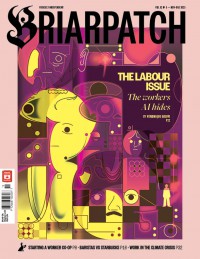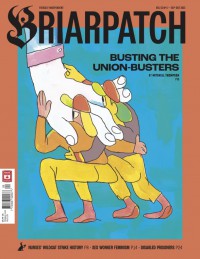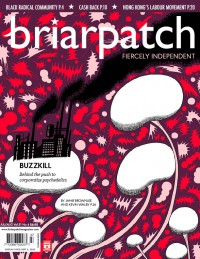-
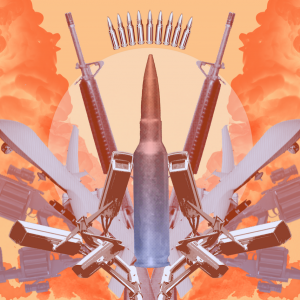 Magazine
MagazineDisability and war
Across the world, people are disabled in vast numbers by war, occupation, and imperial violence. How can disability justice confront the U.S. and Canadian war machines?
-
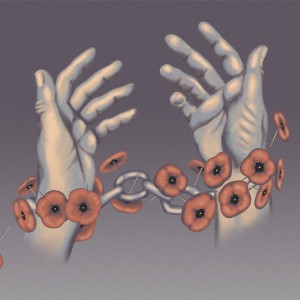 Magazine
MagazineA penny a poppy
Millions of Canada’s plastic Remembrance Day poppies have been made by prisoners and people labelled with intellectual/developmental disabilities, who are paid pennies on the hour. It’s part of a long history of prisons and institutions using poverty to control disabled and criminalized workers.
-
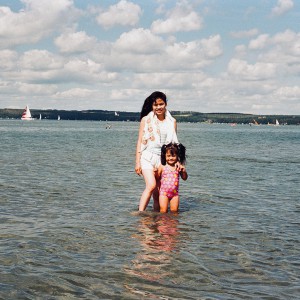 Magazine
MagazineWe are the boat’s people
Without the war, we would still be the boat’s people, Má. We try to find land, where the joyful people are, but we only surround ourselves with water.
-
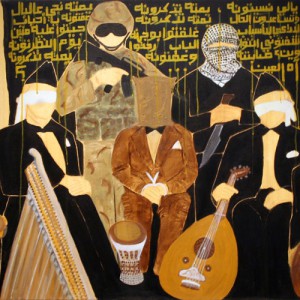 Magazine
MagazineArt and identity
Montreal-based Iraqi-Canadian artist Sundus Abdul Hadi discusses art and identity in the context of the Iraq War and Arab diaspora.
-
 Magazine
MagazineLetter from the editor
The shift in modern warfare toward counterinsurgency carried out by states against diffuse populations, rather than organized armies, calls for new instruments of domination.
-
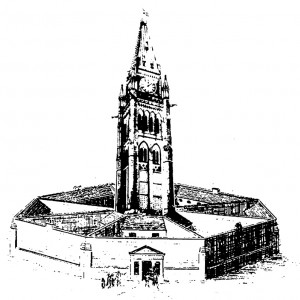 Magazine
MagazineKillers in high places
If the drug war is a tool of social and territorial control and capital accumulation, it’s not enough to simply accuse Harper’s Conservatives of pursuing a misguided strategy.
-
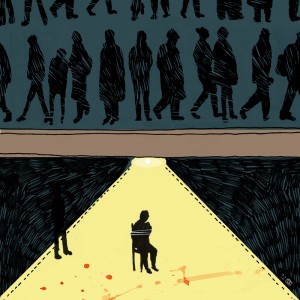 Magazine
MagazineWhen a bone breaks
“It’s going to be very painful without the anaesthetic in your toe.” My face twists in anticipation. “Maybe we could give you something to relax a little, send you off to sleep.”
-
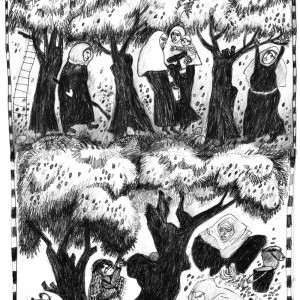 Magazine
MagazineThe olive grove
The annual olive harvest is a key economic, social, and cultural event for Palestinians. The olive oil produced makes up 14% of agricultural income in the Occupied Palestinian Territories and helps support 80,000 families.
-
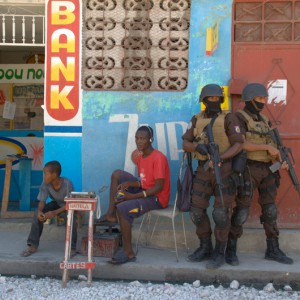 Magazine
MagazineOutsourcing sovereignty
Haiti is an avant-garde microcosm of the privatization, deregulation, and loosening of state structures and protections that is happening everywhere.
-
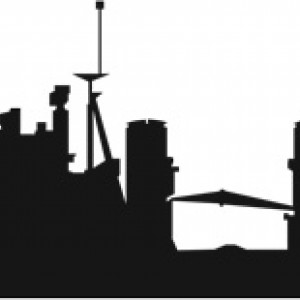 Magazine
MagazineResponsibility to protect?
The Responsibility to Protect (R2P) is a new name for the old concept of humanitarian intervention, or humanitarian imperialism.
-
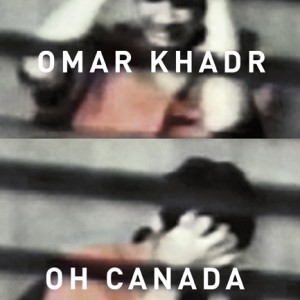 Magazine
Magazine“Dreams are the worst right now”
After a decade of captivity, Omar Khadr, the first child ever convicted of a war crime, became the last Western citizen to be repatriated out of Guantanamo Bay.
-
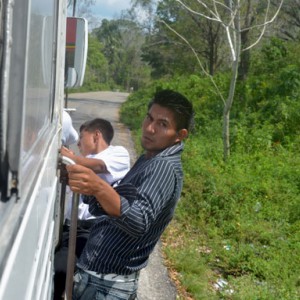 Magazine
MagazineThe spoils of an undeclared war
The presence of drug traffickers in Laguna del Tigre hasn’t affected oil production. In fact, there’s a renewed interest from oil companies in Guatemala’s oil.
-
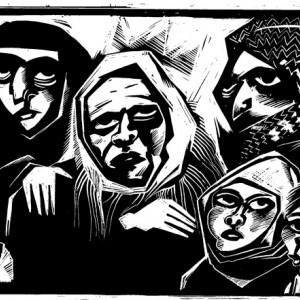 Magazine
MagazineFrom worker to worker
Since the 2005 call for solidarity from Palestinian trade unions and civil society organizations, unions all over the world have responded with resolutions and actions to break ties with Israel’s apartheid regime.
-
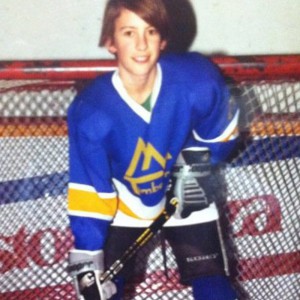 Magazine
Magazine“The best game you can name”
Fifteen thousand people pack the seats of the sold-out MTS Centre in Winnipeg. They cheer wildly as the home team Jets rush the puck up through the neutral zone. Cheers erupt louder still as shots are fired on goal, bodies slammed brutally into boards, and pucks are buried deep in the visitor’s net.
-
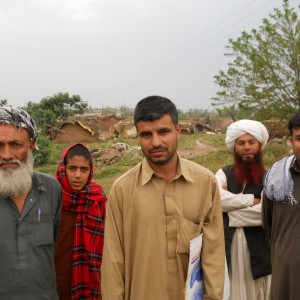 Magazine
MagazineOpen for business
Afghanistan, and the surrounding region, has been in the crosshairs of imperial expansionists for centuries. In 1600, Queen Elizabeth I set the East India Company on its march northward through India. This expansion of the British empire was confronted in Afghanistan in the early 19th century by the southward expansion of the Russian empire, instigating a series of wars known as the “Great Game.”
-
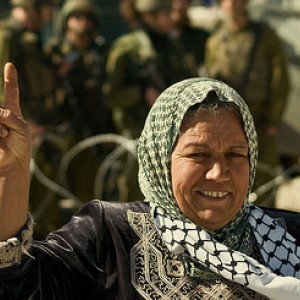 Magazine
MagazineOur way to fight
In this book, you’ll meet Palestinians and Israelis whose struggles for peace, justice and an end to more than half a century of illegal dispossession and brutal occupation, belie the racism and harmful homogenising of history that fuel the current policies of the Zionist state.
-
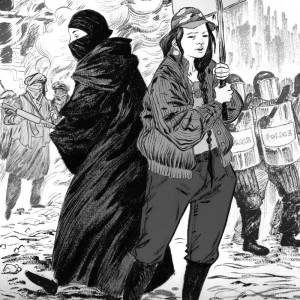 Magazine
MagazineHierarchies of worthiness
In news coverage of violence, women are almost always portrayed as victims. Whether they are worthy, innocent victims in need of rescue (“virgins”), as in the case of Afghan women post-9/11, or unworthy, culpable victims to be ignored or incarcerated (“vamps”), as with Indigenous women in Canada, depends on their strategic value to the forces in power.
-
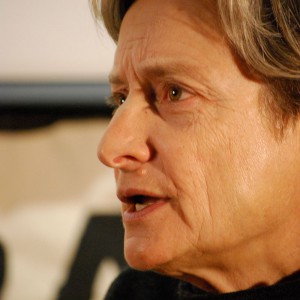 Magazine
MagazineLives less livable
Butler’s theory of gender-as-performance remains her best-known contribution to academia, but for the last decade her attention has gradually shifted from gender to the politics of war. Now she’s struggling with questions like, whose deaths matter, and why are some deaths grievable but others not?
-
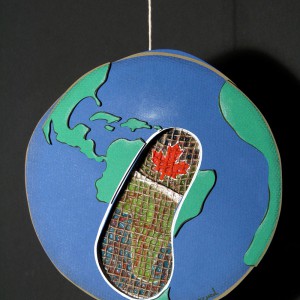 Magazine
MagazineLetter from the editor
George Orwell wrote that in a time of universal deceit, telling the truth can be a revolutionary act. Similarly, in an age of lies-passed-off-as-truth (the propaganda model), truth-passed-off-as-lies (satire) has a power all its own.
-
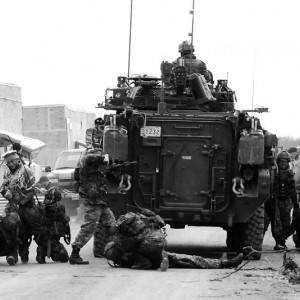 Magazine
MagazineWalking backward into battle
It was well after midnight when we got off the yellow school buses and stepped into a field of thick Alberta mud. The sides of the large field kitchen tents nearby were billowing in the cold wind. Our kit had just been chucked to the ground from the buses, each item landing with a wet thump. Maple Defender, a week-long training exercise, was designed to give us a taste of the war in Afghanistan, as far “down in the weeds” as it was possible to get without actually being there.

